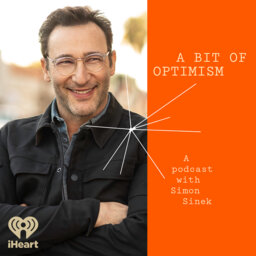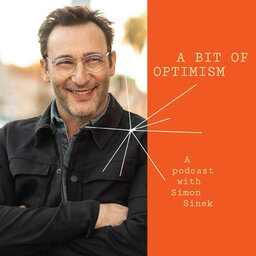Unreasonable Hospitality with Will Guidara
If you walk up to someone and say “you’re being unreasonable!” most people would be offended. Will Guidara, however, would take it as a compliment.
A renowned New York restaurateur, Will transformed Eleven Madison Park into the best restaurant in the world by reinventing how they offered hospitality....they made it unreasonable.
I had a chance to sit down and talk to him about how he learned the power of being unreasonable.
This is… A Bit of Optimism.
For more on Will and his work, check out his new book Unreasonable Hospitality below or wherever you prefer to buy your books:
https://simonsinek.com/optimism_press_books/unreasonable-hospitality/
In 1 playlist(s)
A Bit of Optimism
The future is always bright...if you know where to look. Join me each week for A Bit of Optimism - …Social links
Follow podcast
Recent clips

Revisited: We Cannot Heal Alone In The Loneliness Epidemic with Rabbi Sharon Brous
34:12

Confident Ignorance with rapper, novelist, and filmmaker Logic
1:00:19

Wealth Is Togetherness with community organizer Kennedy Odede
37:11
 A Bit of Optimism
A Bit of Optimism